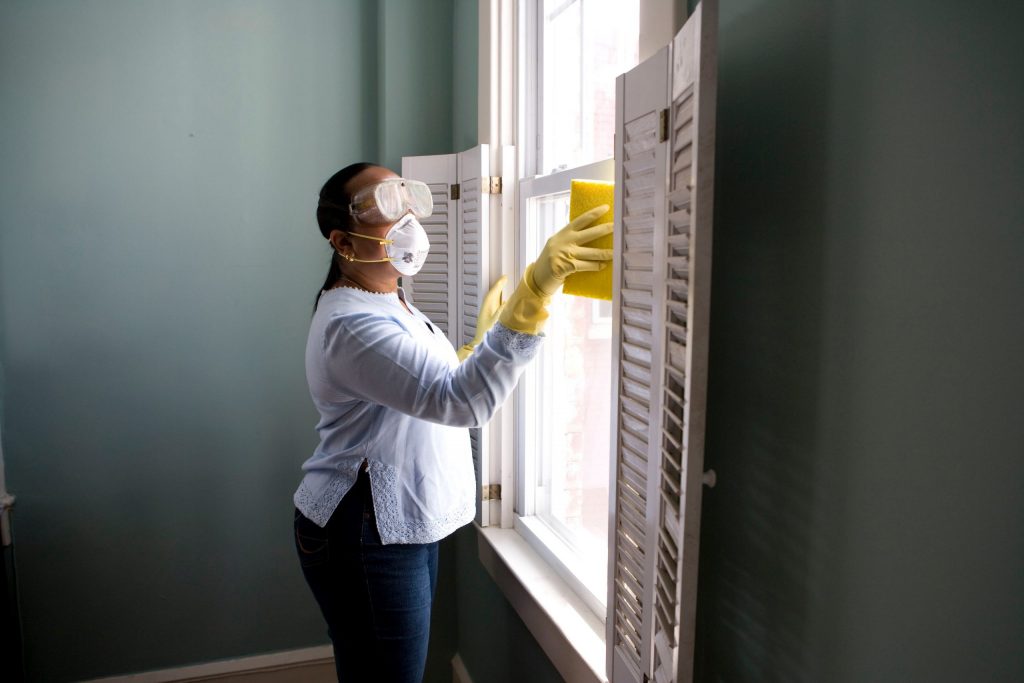
Cleanliness is the key to health: how to properly disinfect at home during the coronavirus pandemic. Wet cleaning in a house or apartment should be carried out, if everyone is healthy, two to three times a week using household chemicals. If there is a sick person in the house, wet cleaning should be done daily and chlorine-based disinfectants should be used.
You should clean all the high-touch surfaces such as:
-
- Doorknobs
- Light switches
- Cabinet handles
- Chair backs not upholstered in fabric
- Desk
- Coffee tables and other hard surfaces
- Kitchen countertops
- Appliances
- Sinks
- Toiletries (toothbrushes, combs, etc.)
- Toilet (toilet, bath, shower, bidet)
Wash with soap or treat with an alcohol-based antiseptic of at least 70% or a chlorinated solution. You need to wash everything that you touch when you come home before you wash your hands with soap. Wipe with an antiseptic cloth. If everyone in the house is healthy, there is often no need to wipe the switches. If there is a sick person in the house, you need to wipe it after each use.
Oxyactive agents, such as hydrogen peroxide, are effective against coronavirus. Using a six percent solution, peroxides disinfect indoor surfaces, glassware, rubber, plastic, corrosion-resistant materials, hard furniture, children’s toys, and utensils. If the surfaces are treated with peroxide, then they should be thoroughly washed with water.
For disinfection, it is very important to regularly ventilate the rooms and, if possible, humidify the air. For bacteria and viruses, the most favorable conditions are dry, warm air. You can disinfect the apartment using a quartz bactericidal lamp. It should be turned on every six hours for 15 minutes. But when the lamp is on, there should be no people in the room.
How long does a coronavirus live?
Specialists from the US National Institute of Allergy and Infectious Diseases (NIAID) mimicked the spread of the virus around an infected person by sneezing and coughing and by touching objects. As it turned out, COVID-19, spreading by sneezing, remains viable in the air for at least three hours. On plastic, and stainless steel, it can last three days, on cardboard — about a day, on copper — up to four hours. The virus lives on bank cards for up to nine days, and on paper money — up to 14 days. That is why experts do not recommend using cash now.
In many countries where the coronavirus pandemic has gained momentum, it is advised to wash outer clothing in a washing machine at 60 degrees immediately after returning home. You can hang it on the balcony under the sun’s rays. But at the same time, the possibility of infection through clothing is unlikely, since the virus does not remain on the surface of the tissue, but penetrates into it.
Picture Credit: Unsplash
